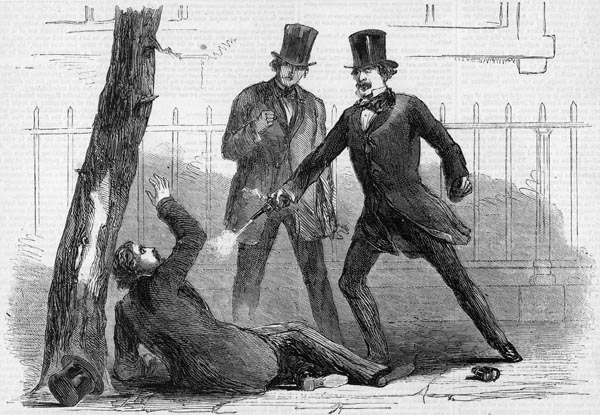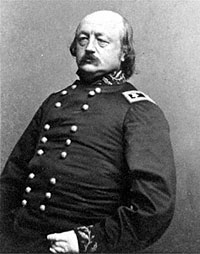I like movies but watch too few of them. Somehow I can't sit still for long enough, or have something else to do. I have to make resolutions to watch them. It's really quite silly.
But after my eye surgery, I was confined to bed, and still am forbidden much movement, so have watched more movies than usual, and even a whole season of Deadwood, in a truly decadent binge.
As I've mentioned before, one thing I really like is movies that are pretty good but not great, that let me rewrite them as they are going on, and serve as inspirations for new plots. Last week I watched a movie that was perfect for that: Frailty, which is about religious revelation and murder in an East Texas town. I liked it, but thought it was only half good, in that it carefully built up a situation that it then blew. Most crucially, it dumped a key character, one with genuine strength of soul that we had every reason to respect, in the toilet, in an ill-advised attempt at a creepy twist ending. And the ending was genuinely creepy. I just thought it was the wrong one.
On a rainy night, a young man, Fenton Meiks (played by Matthew McConaughey) shows up at FBI headquarters to tell FBI Agent Wesley Doyle (the impressive Powers Boothe--also in Deadwood, as it happens) that he knows who a notorious serial killer, the Hand of God, is. And he knows this because of what happened to him in his childhood.
Now, as a movie viewer, you know that, in any kind of movie worth watching, the FBI agent is not just a neutral listener to a confession. He is receiving this confessional because he, in some twisted way, is related to the things being confessed.
And so it is. I won't tell you what the connection is, except that it turns out to be lame and pointless and totally contrived. That revelation comes pretty late in the movie, though, so most of it can be enjoyed before it gets to that point.
As Doyle and Meiks drive out to check out where the bodies are buried (oddly enough, though the Hand of God is billed as a serial killer, only the first of his bodies have been found, an oddity that gets explained later), Meiks tells the story of his childhood. He starts with some idyllic childhood scenes of him and his younger brother Adam, an idyll shattered one morning when their widowed Dad comes into their bedroom and tells them that he has been visited by an angel. This angel has told him that the world is inhabited by a number of demons, looking exactly like normal human beings, that it is his mission to eliminate. And his sons need to help him.
The steady progress of this mission is the main motive spring of the film. Dad finds the instruments of his vengeance (gloves, a pipe, an ax). And he starts kidnapping people, murdering them, and burying them in a rose garden near his house. Young Adam is down with this. Fenton, a bit older, resists, and is savagely punished for his resistance. Things get worse and worse.
Is it crazy to do something crazy if an angel with a flaming sword appears on the underside of the oil pan of a sedan you are repairing and tells you to do it? Well...yes, of course it is. Even Moses asked for some indication of God's bona fides before doing his bidding, but Dad is a sad and lonely widower with two sons that are probably more trouble to raise than it seems, and is happy to have a mission.
I write novels, not screenplays. Novels can handle a lot of narrative complexity. Movies can't. You can only do so much in 100 minutes. So the movie had no way to tie Agent Doyle to the past story, detail the actual actions of the Hand of God killer, and show the two boys in later life. But the movie at least toys with an obvious notion for a science fiction writer: what if the demons are real? What if Dad has a real mission, no matter how deranged he seems?
When I was a kid I loved a show called The Invaders. It was about an architect who sees an alien spacecraft one night, and spends the rest of the series trying to persuade people that there are aliens invading the Earth. No one ever believes him. The aliens are always out to get him, and he often has to kill them. When they die they vaporize.
Already rewriting things in my head at age 10 or so, I waited, every week, for him to screw up and kill someone who doesn't vaporize, but just lies there and bleeds on the pavement. How can he possibly maintain a 1000 batting average? What does he do when he realizes he has killed a human being, not an evil alien? What new secrets get revealed by that, and what does he do? Needless to say, it never happened, but I thought something of the same thing watching Dad kidnap people and haul them home to be eliminated. Even if some of them are demons, is he always right?
Plus, the point of killing them off is unexplained. There is no hint of a coming apocalypse, a final struggle, whatever. It's just a form of extreme police enforcement, religious vigilantism. But that Dad is unreflective is totally fine. Bill Paxton, who also directed, does a great job with the role, holy vengeance as everyman. He's a good and loyal employee at the garage where he works, and he's a good and loyal instrument of the Lord.
But Fenton's childhood resisting the demands of his holy serial killer Dad...connected to a more interesting Now story, one where the consequences of that time really come home to roost, and some unexpected truths are revealed...some potential there.
Secular skeptic that I am, I'm probably not the right person to write it. Because I see refusal to play ball as a valid response to an insane request, even from a supernatural being. It's like the ending of one of the best debate-the-meaning-with-your-friends movies ever made, Michael Tolkin's 1991 The Rapture: if God insists on generating an evil world and then following it up with an Apocalypse that is simultaneously arbitrary, cruel, and cheesy, isn't the only existentially valid response to refuse to go along?
Many people would argue that it isn't. Ours is not to reason about the mission God gives us, or to criticize His special effects.
But it's been two decades since The Rapture and one since Frailty, so it's about time for another meditation on what one of us moderns would do if some being stepped out of Scripture, grabbed us by the shoulder, and gave us a mission.


